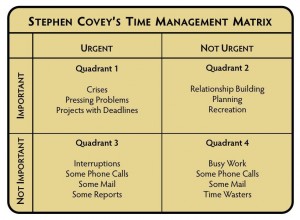By SUSAN CROWELL
The photo on the big screen shared a familiar scene. It was a beautiful white clapboard-sided little church out in the countryside. You know, the typical church with the steps in the front leading to the double doors, towering steeple atop the rectangular box frame, and two or three tall, narrow stained glass windows along each side.
But on closer inspection, you realized the windows were boarded up, the gravel parking lot was overgrown with weeds, and it was clear there had been no recent signs of life at the church — save for three vultures perched on the roof.
The words atop the photo said it all: “Congregation members didn’t plan for this to happen.”
There is, you might note, a play on the word “plan.” My minister saw the photo during a Feb. 8 presentation on developing meaningful worship services, and shared the story with us Sunday. The gist: If you don’t plan — plan for growth, plan for change, plan for the future, plan for the unexpected — you’re doomed.
I immediately saw the parallel for just about all of life, but certainly farming, because we’ve all seen — either in photos or in real life — the barns with sagging roofs, the fields overgrown with tree of heaven or multiflora rose, broken fences.
Those farmers didn’t plan for that to happen either.
Here at the paper, we get so caught up in the “busy-ness” of getting a paper done each week, sometimes we don’t plan well either. And it shows. Maybe not to you, but we see it (and feel it, in the increased stress and scrambling).
Planning often requires sitting. Thinking. Scribbling. Reading. Pondering. Getting advice. Maybe a meeting with others on the farm or others off the farm. But we’re men and women of action, not of sitting, and there’s always myriad immediate things that cry for our attention.
So we procrastinate, and push planning until later.
Until we’re stressed and scrambling, and wondering, “Why didn’t I ever create a canola marketing plan and stick to it?” or “Man, I wish I would’ve explored other farm enterprises. The emu market just tanked.”
Or the questions that aren’t the least bit funny: “Why didn’t we push mom and dad to create an estate plan?” or “Do I have enough resources to retire?”
There’s a well-known time management philosophy created by Stephen Covey. Basically, he said we spend our time in four quadrants (picture a box divided into four sections): Important/Urgent; Important/Not Urgent; Not Important/Urgent; and Not Important/Not Urgent.
We spend most of our time (possibly as much as 90 percent) doing things that are important or urgent: planting, milking, feeding, breeding, harvesting. And typically, we spend the rest of our time in the not important quadrants: needless interruptions, unimportant phone calls, busywork, time wasters.
Very little of our time is spent on things that are not urgent, yet still important, like, oh, say planning or building relationships.
Covey had a great quote that is worthy of every bulletin board: “The key is not to prioritize what’s on your schedule, but to schedule your priorities.”
Kevin Spafford, who writes about farm succession issues in Farm Journal, reminded his readers recently that “indecision is a choice” and “Leaving things to chance is never the best option.”
He’s talking about farm succession planning, but his words ring true for all farm planning needs.
All this brings to mind the Benjamin Franklin quote, “If you fail to plan, you plan to fail.”
Even if we didn’t plan for that to happen.













